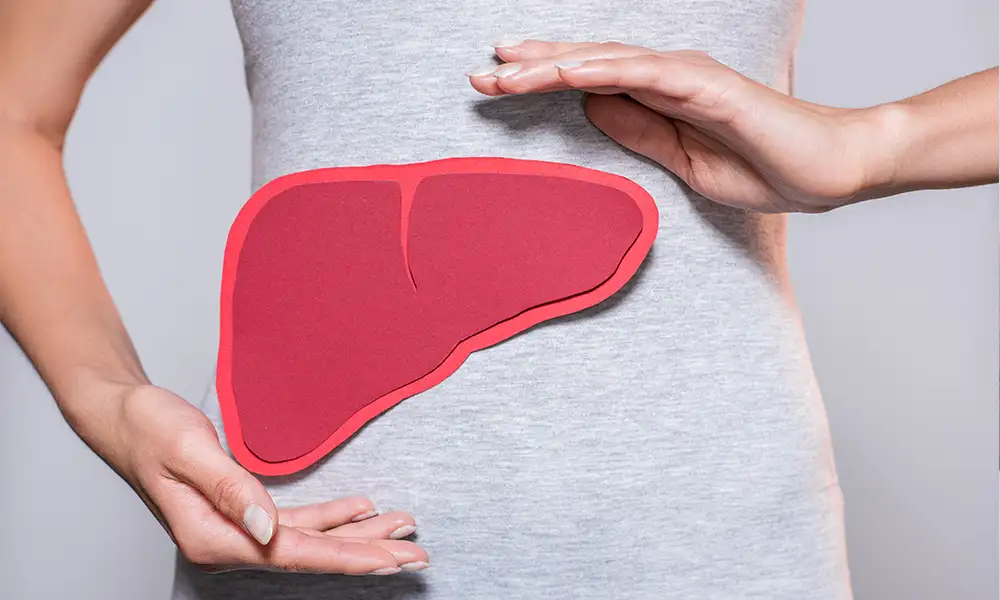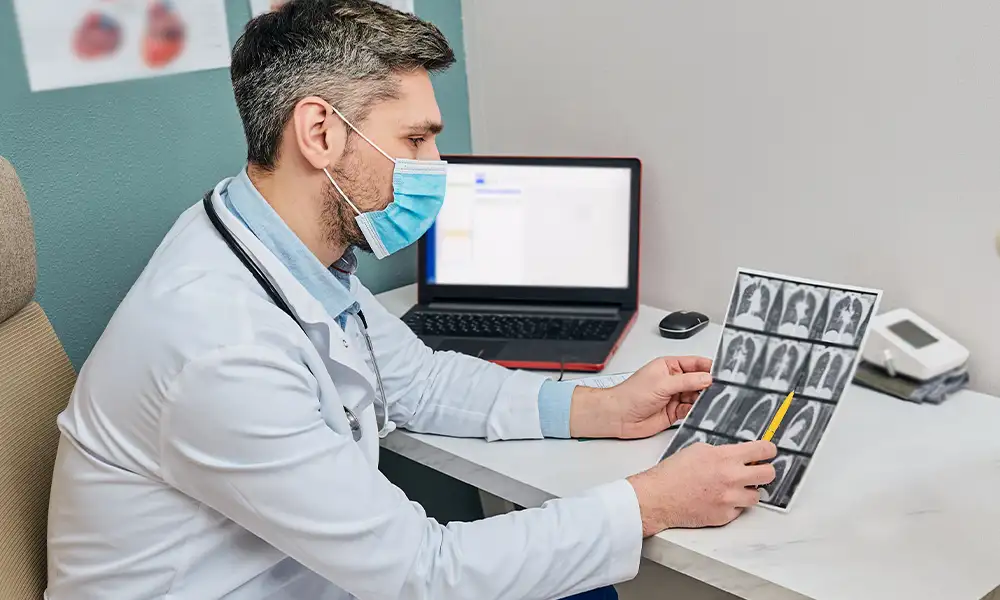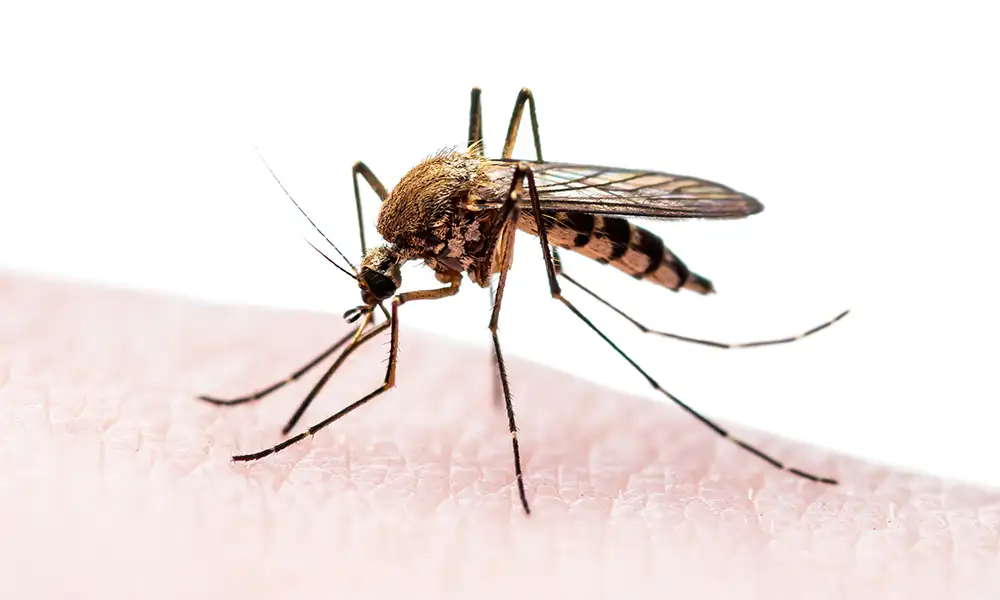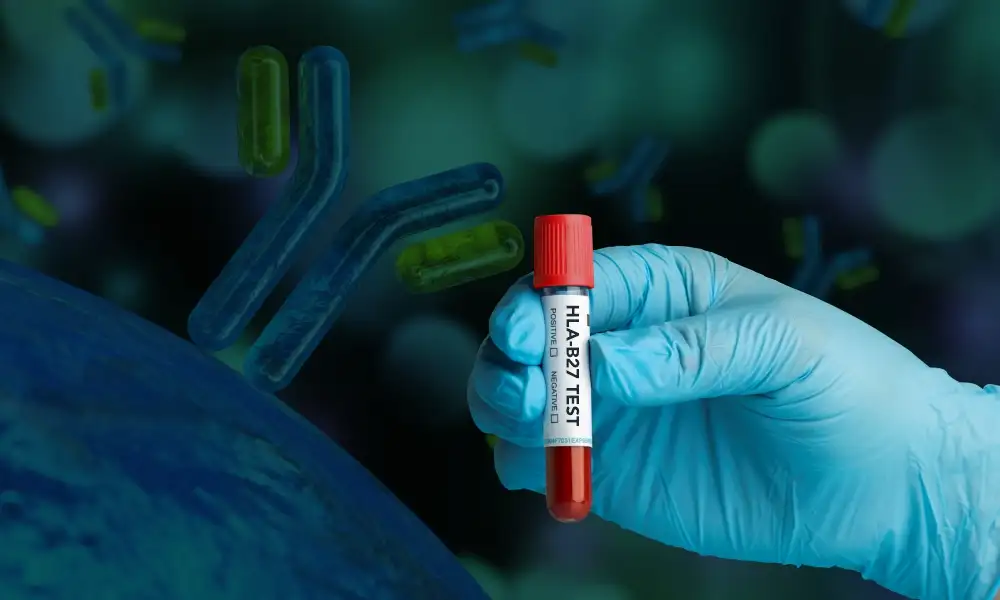Liver Health - An Overview On Signs & Symptoms
- April 14,2022
- 2 Min Read

The liver is the second-largest organ present in the body (after the skin). It represents 1.5% to 2.5% of the lean body mass, making it one of the most vital organs in the body. The liver performs metabolic, vascular, immunological, secretory, and excretory functions. It is also required for carbohydrate, protein, and fat metabolism in the human body.
Types of liver diseases and their causes
Several conditions cause damage to the liver and prevent it from functioning well. But timely diagnosis and treatment will allow the liver to heal. These are the most common types of liver diseases and their causes:
- Non Alcoholic Fatty Liver Disease (NAFLD): An increased build-up of fat in the liver resulting in permanent damage to the liver. Cause of development is unknown. Risk factors include gastric bypass surgery, obesity, high cholesterol and type 2 diabetes. If detected early, it can be reversed.
- Alcoholic Liver Disease: Accumulation of fat in the liver due to alcohol consumption which causes liver inflammation, damages your liver and creates scarring. In severe cases, this scarring can lead to liver failure.
- Viral Hepatitis: A viral infection in the liver caused by hepatitis A, B, C, D, and E triggering inflammation (swelling due to injured or infected tissues) and damages the liver. Other viruses that can cause acute liver failure include Epstein-Barr virus, cytomegalovirus and herpes simplex virus.
- Liver Failure: Loss of liver function due to acute or chronic conditions in a person. Chronic liver failure, which develops gradually over time, is more common than acute liver failure, which develops in a matter of days or weeks, progressing to liver failure. Causes include reaction to certain prescription medications (that include antibiotics, nonsteroidal anti-inflammatory drugs, and anticonvulsants); high doses of acetaminophen or paracetamol, hepatitis infection, alcohol abuse and advanced fatty liver.
- Gilbert’s Syndrome: An inherited condition occurring due to a defect in the processing of bilirubin by the liver. It causes a yellow tinge to the skin and the whites of the eyes.
- Portal Hypertension: Blood cannot flow properly through the liver as the vessels in the liver are blocked due to liver damage. As a result, high pressure develops in the portal system. This increased pressure in the portal vein may cause build-up of large, swollen veins (varices) within the oesophagus, rectum, stomach or umbilical area (belly button).
Symptoms of liver diseases
The symptoms of liver diseases differ depending on the underlying cause. Symptoms often don't surface at early stages, yet they are preventable with regular diagnostic screening. Some common symptoms are:
- Yellow skin and eyes, known as jaundice
- Dark urine
- Pale, bloody, or black stool
- Swollen ankles, legs, or abdomen
- Nausea
- Vomiting
- Decreased appetite
- Ongoing fatigue
- Itchy skin
- Easy bruising
Is your liver at risk?
To begin with, one of the factors that endanger liver health could be excessive alcohol consumption. As per the 2020-2025 Dietary Guidelines for Americans recommends drinking in moderation by limiting intake to 2 drinks or less in a day for men or 1 drink or less in a day for women, on days when alcohol is consumed may help reduce the risk of alcohol-related harms. Where, 1 drink could be - 12 ounce 5% ABV beer; or 8 ounces 7% ABV malt liquor; or 5 ounces 12% ABV wine; or 1.5 ounces 40% ABV (80 proof) distilled spirits like gin, rum, vodka, and whiskey.
Other risk factors include:
- Being overweight
- Type 2 diabetes or high cholesterol
- Family history of liver disease
- Getting hepatitis B virus infection through -
- Sharing and body piercing with non-sterile needles
- Unprotected sex leading to sexually transmitted infections
- Job exposing one to blood and other bodily fluids
- Exposure to toxins or pesticides
- Mixing certain medications with alcohol
- Taking more than the prescribed dose of certain medications
Recommended tests
If one suspects having liver diseases, schedule an appointment and get tested to narrow down the cause of the symptoms.
Following are the Liver Function Tests offered at Suburban Diagnostics:
- Liver function tests
- Bilirubin - Finds a yellow-coloured waste produced by the normal breakdown of red blood cells in the liver.
- SGPT: Measures the amount of Glutamate Pyruvate Transaminase (GPT) in blood serum.
- SGOT: Measures the amount of Glutamic-Oxaloacetic Transaminase (GOT) in blood serum.
- GGT: Detects an enzyme found principally in the liver; susceptible to changes in liver status, mainly when bile ducts are blocked.
- Total Proteins: Measures the sum of two kinds of protein in the blood known as albumin and globulin. The test may measure the relative levels of albumin and globulin, which is reported as the A/G ratio.
- ALP: Alkaline Phosphatase Level Test - Detects an enzyme related to the bile ducts; often increased if ducts are blocked.
- Urine: Measures the amount of bilirubin excreted from the body in urine.
- Hepatitis B testing - Antibody & PCR testing
- Hepatitis C testing - Antibody & PCR testing
- Ultrasound of whole abdomen
- Autoimmune liver disease panel
- Antinuclear antibody (ANA)
- Liver kidney microsomal antibody (LKM-1)
- Mitochondrial antibody (AMA)
- Smooth muscle antibody (ASMA)
How to keep your liver healthy?
- Eat a balanced diet.
- Maintain a healthy weight.
- Avoid drinking alcohol.
- Practice good hand hygiene like washing your hands before preparing or eating food.
- Get vaccinated for hepatitis.
Want to book a test? Fill up the details & get a callback
Most Viewed
Premarital Health Screening
- 20 Min Read
Typhoid - Signs and Symptoms
- 3 Min Read
Home Isolation Guidelines - Covid-19 Care
- 5 Min Read
HLA B27 Detection: Flow Cytometry & PCR
- 1 Min Read














